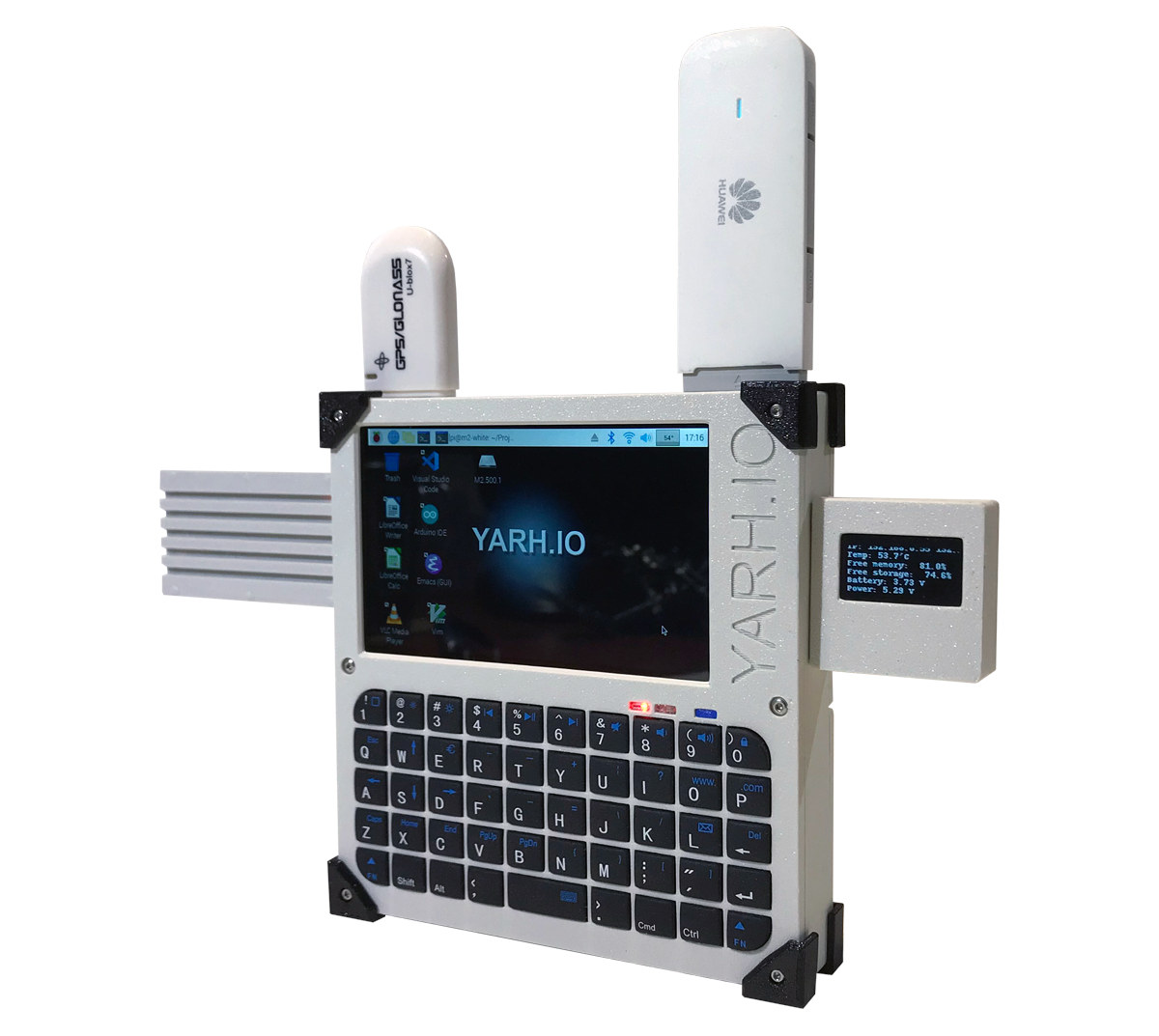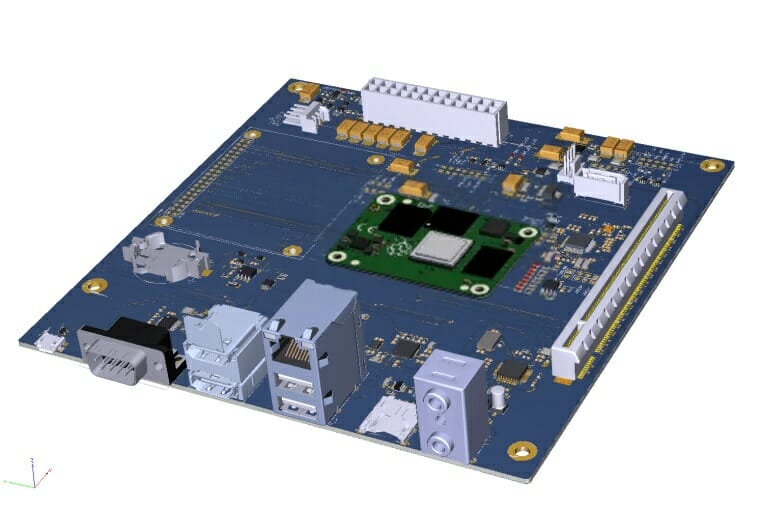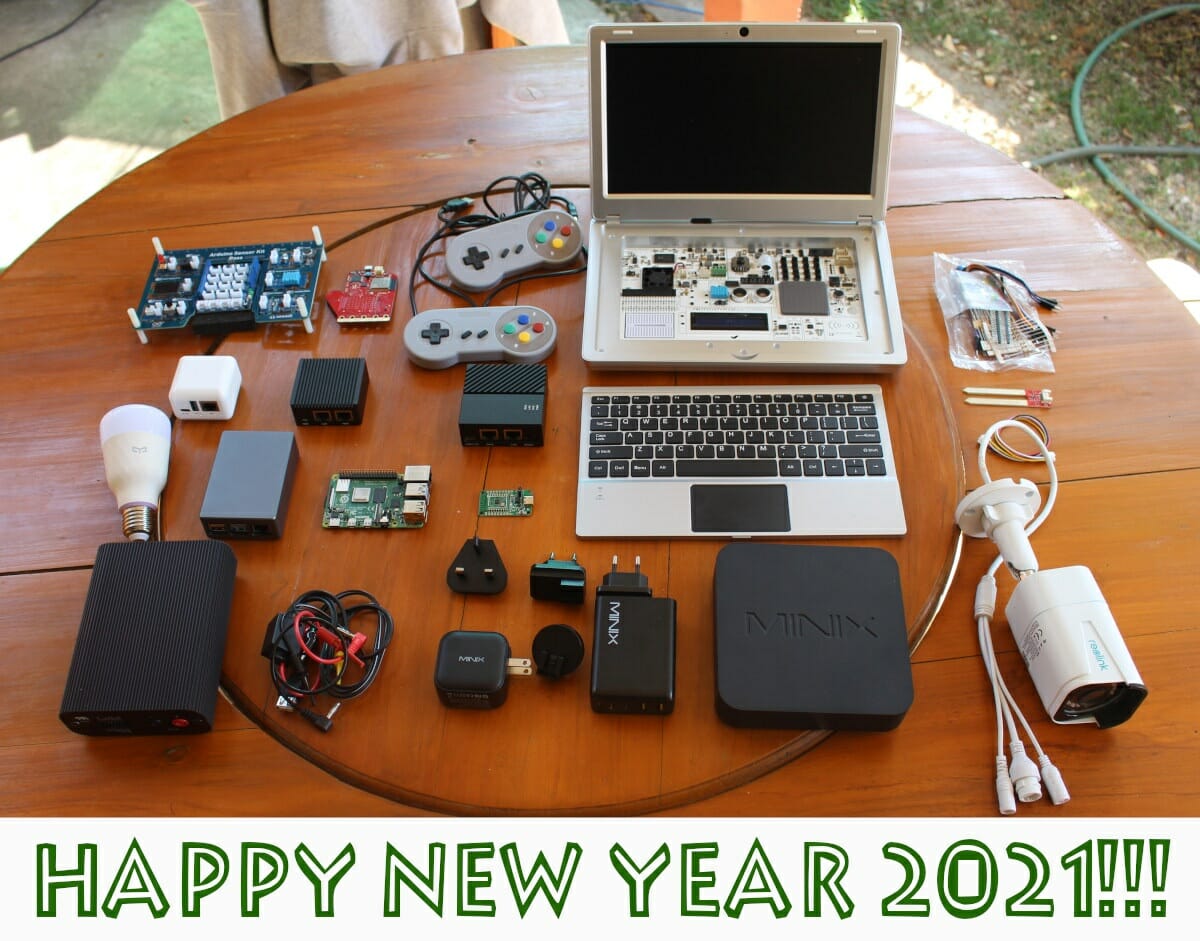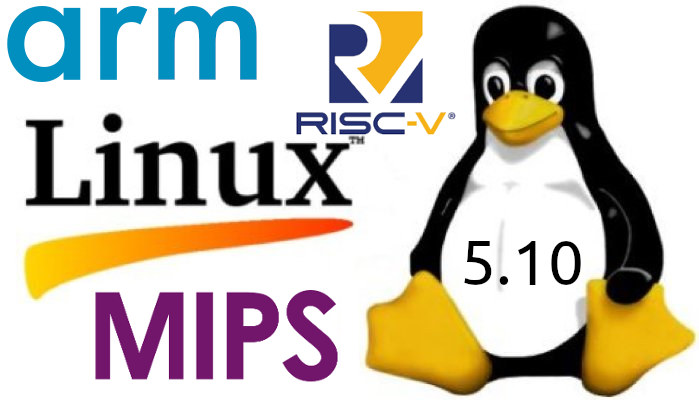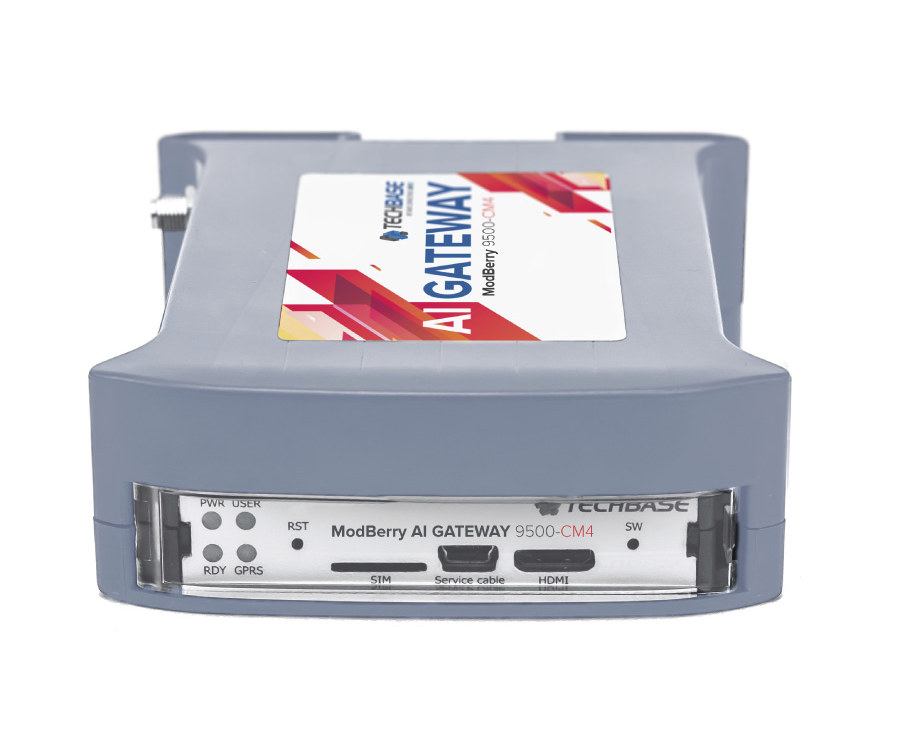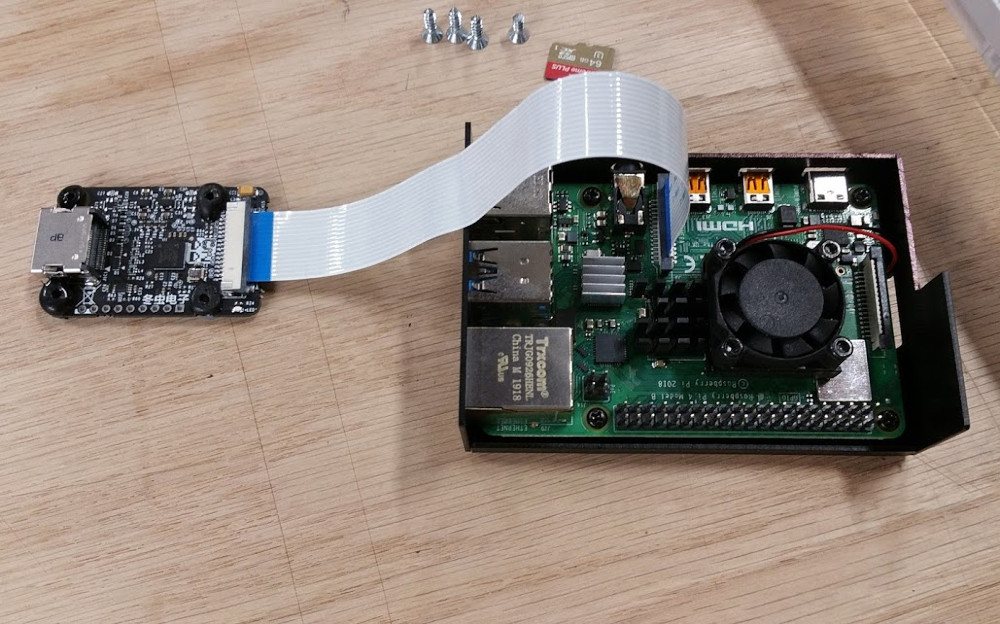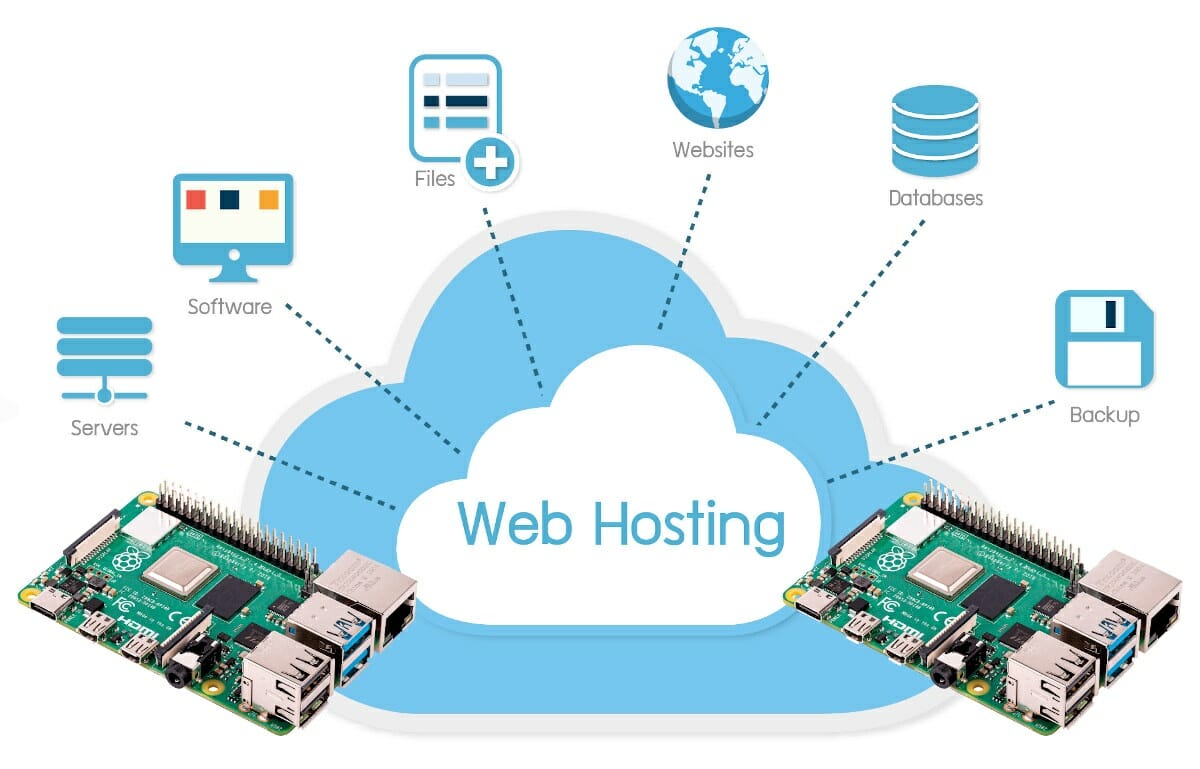We’ve already seen a few DIY Raspberry Pi-based handheld computers in the past with the likes of Zero Terminal V3 or hgTerm powered by a Raspberry Pi Zero and a stripped-down Raspberry Pi 3 board respectively. So why not another? YARH.IO Micro 2 DIY handheld PC is based on a Raspberry Pi 3B+ SBC stripped from its Ethernet port, whose double stack USB connectors have been replaced with single stack USB connectors. The DIY computer also adds off-the-shelf parts with a 4″ touch screen display and a Bluetooth keyboard without touchpad, and gets its power from a 3,500 mAh battery. YARH.IO Micro 2 key components and features: SBC – Stripped-down Raspberry Pi 3B+ SBC Display – HyperPixel 4.0 4-inch IPS display with 800×480 resolution, touchscreen from Pimoroni Keyboard – 49-key mini keyboard with Bluetooth 3.0 ($10) USB – USB straight and right-angle connectors for four USB ports around the device […]
Raspberry Pi 4 Mini-ITX carrier board. Meet Over:Board (Crowdfunding)
While the Raspberry Pi 4 SBC is popular for its small form factor, affordable hardware, and good software support, the Raspberry Pi Compute Module 4 offers more flexibility and allows makers and companies to design their own hardware matching their requirements, while still leveraging the existing software support. We’ve already seen a mini-ITX carrier board for the Raspberry Pi 4, namely the upcoming Turing Pi 2. However, the board has very specific use cases in mind since it’s a cluster board designed for four Raspberry Pi Compute Modules 4. But British engineer Ross Nicholls has designed Over:Board carrier board for Raspberry Pi Compute Module 4 for most traditional use cases, in essence, designing what amounts to a Raspberry Pi 4 mini-ITX motherboard with SATA, PCIe, etc. Over:Board specifications: Compatible SoM’s – Raspberry Pi CM4 or CM4Lite with Broadcom BCM2711 quad-core Cortex-A72 processor, up to 8GB RAM, up to 32GB storage. […]
Open-source VSCP IoT/M2M automation framework supports Arduino, Raspberry Pi
VSCP (Very Simple Control Protocol) is an open-source IoT framework that works on development boards like Arduino or Raspberry Pi, and lets you control IoT home automation tasks. The framework is highly scalable, has a very low footprint, and as such is specially designed for resource-limited devices. VSCP is an open-source standard protocol for m2m, IoT and other remote control and measurement applications. It enables simple, low-cost devices to be networked together with high-end computers and/or to work as an autonomous system, whatever the communication media is. The VSCP Protocol has two levels: Level 1 and Level 2. The protocol was primarily used in CAN networks (that is Level 1 for tiny microcontrollers) because CAN is cheap and reliable with high efficiency. However, VSCP can be used for faster transport layers such as TCP/IP, so here comes Level 2 which achieves better performance. We have already seen Souliss, an open-source […]
Year 2020 in review – Top ten posts and stats
It’s this time of the year when we look back at what happened, and what may be next. 2020 did not pan out as planned in more ways than one, but there were still some interesting developments. Based on 2019 announcements, 2020 was promising to be an exciting year for Amlogic and Rockchip with the expected launch of RK3588 and S908X high-end processors for 8K capable devices, but we’ll have to wait for 2021 for this to happen. Instead, the most interesting processor of the year from the Allwinner, Amlogic, and Rockchip offerings was probably Amlogic S905X4 processing adding AV1 hardware decoding. As pointed out in our “RISC-V 2020 highlights” post, it was a fairly eventful year for RISC-V architecture, although there’s still a long road ahead, especially for application processors. We had seen some general-purpose and Bluetooth RISC-V MCUs in 2019, but 2020 saw the launch of the first […]
Linux 5.10 LTS release – Main changes, Arm, MIPS and RISC-V architectures
Linus Torvalds has just released Linux 5.10: Ok, here it is – 5.10 is tagged and pushed out. I pretty much always wish that the last week was even calmer than it was, and that’s true here too. There’s a fair amount of fixes in here, including a few last-minute reverts for things that didn’t get fixed, but nothing makes me go “we need another week”. Things look fairly normal. It’s mostly drivers – as it should be – with a smattering of fixes all over: networking, architectures, filesystems, tooling.. The shortlog is appended, and scanning it gives a good idea of what kind of things are there. Nothing that looks scary: most of the patches are very small, and the biggest one is fixing pin mapping definitions for a pincontrol driver. This also obviously means that the merge window for 5.11 will start tomorrow. I already have a couple […]
AI Gateway combines Raspberry Pi Compute Module 4 with Google Coral Edge TPU
Techbase quickly unveiled an update to their Modberry industrial controllers with Modberry 500 CM4 DIN Rail computer as soon as Raspberry Pi Compute Module 4 was launched. The company has now introduced another Raspberry Pi CM4 based product with ModBerry AI GATEWAY 9500-CM4 gateway combining the Broadcom BCM2711C0 system-on-module to Google Edge TPU to cater to applications leveraging AI acceleration. ModBerry AI GATEWAY 9500-CM4 preliminary specifications: SoM – Raspberry Pi Compute Module 4 AI accelerator – Google Coral Edge TPU module with up to 4 TOPS connected over the RPi CM4’s PCIe interface Peripherals (customizable as needed) USB, HDMI, and Ethernet. Serial RS-232/485 ports Digital and analog I/Os with or without opto-isolation Relays, 1-Wire, CAN bus, M-Bus Master and Slave PCIe modules for wireless support Cellular – 4G/LTE and 5G modem, interchangeable with Coral TPU, plus on-board eSIM LPWAN – NB-IoT, LoRa, Sigfox, Wireless M-Bus ZigBee Additional Wi-Fi/Bluetooth interface or […]
DIY Pi KVM: An easy and cheap KVM over IP for Raspberry Pi
Traditional IP-KVM systems may cost you hundreds of dollars. DIY Pi KVM over IP is a very simple and fully functional Raspberry Pi-based KVM over IP that you can make yourself. If you do not know what IP-KVM is, it stands for keyboard, video, and mouse. It allows you to connect to a computer or a server remotely. With this, you can fix problems such as configuring the BIOS or reinstalling the OS using a virtual CD-ROM or flash drive. You can see the v2 example implementation in the above image. Pi-KVM v0 and v2 are ready-made images available for download for Raspberry Pi. You will find all the required hardware in the “Getting Started” section for the v0 and v2 platform for Raspberry Pi. In the figure below you can see the B101 HDMI-to-CSI bridge connected to the Raspberry Pi. The team is working to launch the v3 board […]
IKOULA hosts Raspberry Pi 4 “micro server” for 4.99+ Euros per month
Hosting services for Arm single board computers where you pay a monthly fee for a board, and have it hosted in a datacenter with Internet access and easy provisioning have been around for over six years. Last summer, we reported that Mythic Beasts and mini Nodes had added Raspberry Pi 4 hosting plans to their offerings, and others commented there were also other companies. But I’ve just been informed IKOULA, a hosting company based in France, had introduced Raspberry Pi 4 “micro server” hosting plans starting at just 4.99 Euros ex. VAT per month. The hosting plans include the following: Micro server – Raspberry Pi 4 SBC with 4GB DDR4 RAM Storage – 16GB SD card (optional 120 GB SSD) Connectivity – IPV6 only, with IPv4 as an option Bandwidth – 1 Gbit/s Availability – 99.95 % The company offers Raspbian (Raspberry Pi OS), Ubuntu 20.04 32-bit or 64-bit for […]


